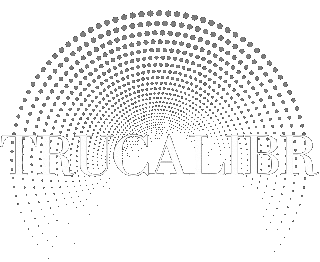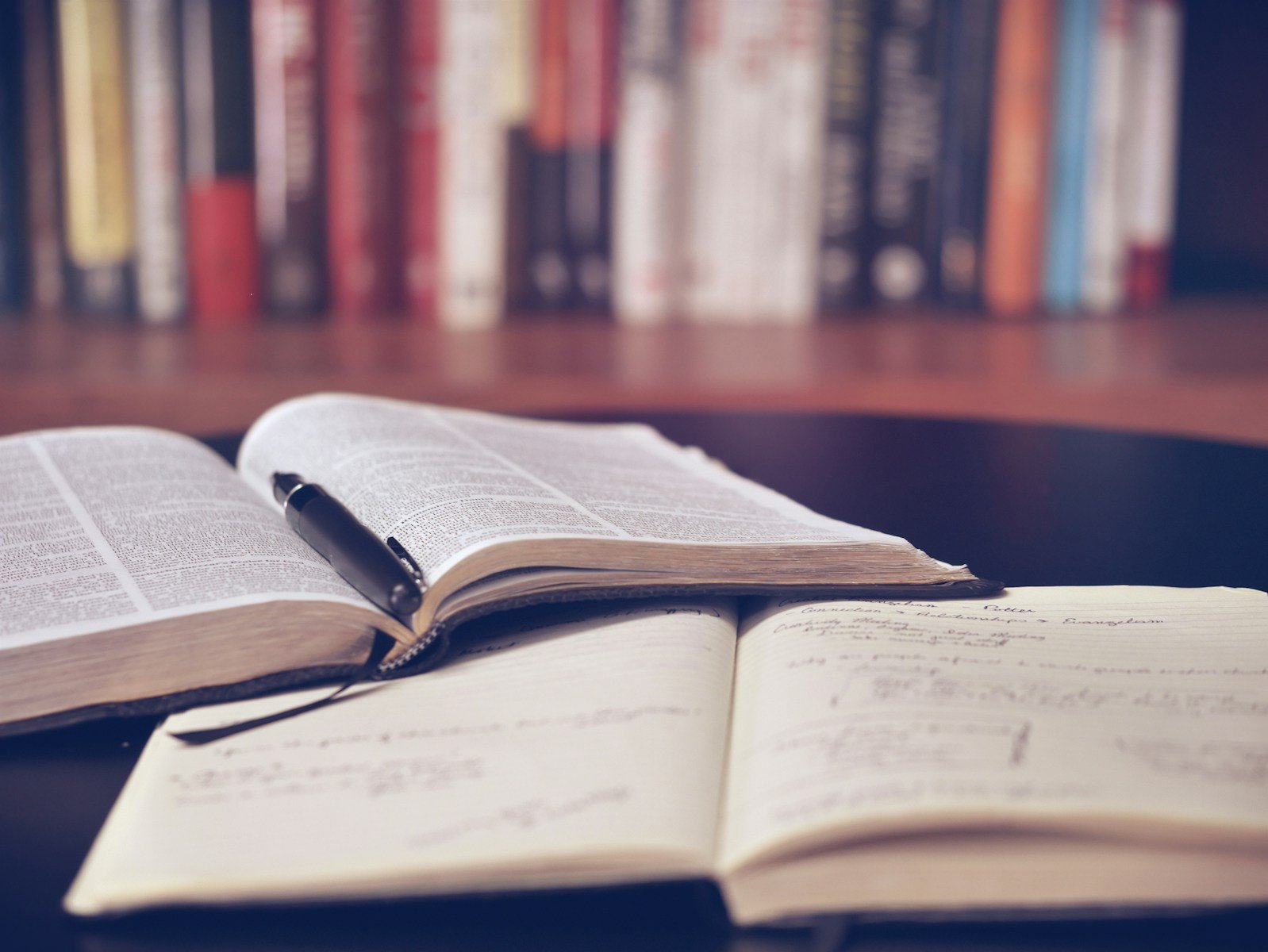Unlocking the Power of Study
The ability to study effectively is more critical than ever before. Whether you’re a student striving for academic success or a professional seeking to enhance your skills, mastering effective study techniques can significantly impact your learning journey.
Studying isn’t just about cramming information before exams; it’s a skill that encompasses various strategies and approaches to absorb, retain, and apply knowledge efficiently. However, many individuals struggle with ineffective study habits, leading to frustration, burnout, and subpar academic or professional performance.
Consider this: according to a survey conducted by the National Center for Education Statistics, nearly 80% of college students report feeling overwhelmed by their academic workload, with a significant portion attributing it to ineffective study habits. Additionally, research from the Journal of Educational Psychology suggests that students who employ proven study techniques consistently outperform their peers who rely on rote memorization or passive learning methods.
This article aims to delve into the art of effective study techniques, providing practical tips, strategies, and insights to help you optimize your learning potential. Whether you’re embarking on a new academic semester, preparing for standardized tests, or simply striving for personal growth, let’s unlock the power of study together.
Table of Contents
- Introduction: Unlocking the Power of Study
- Setting Effective Study Goals
- Time Management Techniques for Study Success
- Embracing Active Learning Strategies
- Mastering Note-Taking Methods
- Preparing Mentally for Study Sessions
- Creating an Optimal Study Environment
- Managing Distractions During Study Sessions
- The Importance of Review and Reflection
- Maintaining Healthy Habits for Academic Success
- Conclusion: Elevating Your Study Skills
Setting Effective Study Goals
Goal setting is a crucial aspect of successful studying. When you set clear and achievable goals, you provide yourself with direction and motivation throughout your learning journey.
Effective study goals are specific, measurable, achievable, relevant, and time-bound (SMART). This means they are clearly defined, quantifiable, realistic, aligned with your overall objectives, and have a deadline.
For example, rather than setting a vague goal like “improve my grades,” a SMART goal would be “achieve a grade of A in my upcoming history exam by studying for two hours every day for the next three weeks.” This goal is specific (attaining an A grade), measurable (studying for two hours daily), achievable (given the time frame and effort required), relevant (aligned with academic success), and time-bound (three weeks).
Research has shown that students who set specific and challenging goals tend to perform better academically. According to a study by Locke and Latham (2006), goal setting enhances motivation and directs attention and effort toward goal-relevant activities, ultimately leading to improved performance.
Moreover, setting goals provides you with a roadmap for your study sessions. When you know what you want to achieve, you can structure your study sessions more effectively, focusing on tasks that contribute to your goals. This helps prevent aimless studying and ensures that your efforts are directed toward meaningful progress.
Another benefit of setting study goals is that it enhances your sense of accountability. When you have clear objectives in mind, you’re more likely to stay committed to your study schedule and monitor your progress regularly. This accountability factor can help you stay on track, even when faced with distractions or obstacles along the way.
In summary, setting effective study goals is a foundational step in mastering the art of studying. By defining clear objectives that are specific, measurable, achievable, relevant, and time-bound, you provide yourself with direction, motivation, and accountability throughout your learning journey.
Time Management Techniques for Study Success
Effective time management is essential for maximizing your study efforts and achieving academic success. By efficiently allocating your time, you can prioritize tasks, minimize procrastination, and maintain a healthy work-life balance.
Prioritize Tasks
One of the key principles of time management is prioritization. Begin by identifying your most important and urgent tasks. These are typically tasks that contribute directly to your academic goals or have impending deadlines. Use techniques such as the Eisenhower Matrix to categorize tasks based on their importance and urgency, allowing you to focus on high-priority activities first.
Create a Study Schedule
Developing a study schedule helps you organize your time effectively and ensures that you allocate sufficient time to each subject or task. Start by assessing your current commitments and available study hours. Block out specific time slots for studying, taking into account your peak productivity periods and other responsibilities. Be realistic about your capabilities and avoid overloading your schedule, as this can lead to burnout.
Use Time Blocking Techniques
Time blocking involves dedicating specific blocks of time to particular tasks or subjects. This technique helps minimize distractions and allows you to focus fully on the task at hand. Divide your study sessions into focused intervals, typically 25-30 minutes long, followed by short breaks. Use tools like the Pomodoro Technique to structure your study sessions and maintain momentum throughout the day.
Set Boundaries and Limit Distractions
To make the most of your study time, it’s crucial to create a conducive environment free from distractions. Identify potential distractions such as social media, emails, or noisy surroundings, and take proactive steps to minimize them. Set boundaries with friends and family members, communicate your study schedule, and establish designated study areas where you can concentrate without interruption.
Practice Self-Care
Effective time management also involves prioritizing self-care to maintain overall well-being and productivity. Ensure you allocate time for adequate rest, exercise, and relaxation activities. Avoid sacrificing sleep or neglecting your physical and mental health in pursuit of academic goals, as this can ultimately hinder your performance and lead to burnout.
By implementing these time management techniques, you can optimize your study routine, enhance productivity, and achieve greater success in your academic pursuits.

Embracing Active Learning Strategies
Active learning is a dynamic approach to studying that involves engaging with course material in a participatory and interactive manner. Unlike passive learning, where information is simply received, active learning requires learners to actively construct knowledge through various cognitive processes.
Key Active Learning Strategies
1. Participation in Class: Actively engage in classroom discussions, ask questions, and participate in group activities. This promotes deeper understanding and retention of course material.
2. Self-Explanation: Verbalize or write out explanations for concepts or problems in your own words. This helps reinforce understanding and identify areas of confusion.
3. Peer Teaching: Teach concepts to a peer or study group. Explaining ideas to others not only solidifies your understanding but also provides an opportunity to receive feedback.
4. Problem-Solving: Practice solving problems and applying concepts in real-world scenarios. This active engagement with the material enhances critical thinking and problem-solving skills.
5. Interactive Learning Tools: Utilize interactive learning resources such as simulations, quizzes, and educational games. These tools make learning more engaging and facilitate active participation.
Benefits of Active Learning
Research has shown that active learning leads to better retention of information, improved critical thinking skills, and increased academic performance compared to passive learning methods. A meta-analysis conducted by Freeman et al. (2014) found that students in active learning environments achieved higher exam scores and lower failure rates than those in traditional lecture-based classes.
By embracing active learning strategies, you can enhance your learning experience, deepen your understanding of course material, and achieve greater success in your academic endeavors.
Mastering Note-Taking Methods
Note-taking is a fundamental skill for effective studying, allowing you to capture key information, organize concepts, and reinforce learning. Mastering effective note-taking methods can enhance comprehension, retention, and recall of course material.
Key Note-Taking Techniques
1. Outline Method: Structure your notes hierarchically, using bullet points or numbering to indicate main ideas and subtopics. This method helps organize information in a logical manner and facilitates review.
2. Cornell Method: Divide your note paper into sections for main notes, cues, and summary. Capture main points and details in the main notes section, jot down cues or questions in the cue column, and summarize key concepts in the summary section. This method encourages active engagement and provides a framework for review.
3. Mapping Method: Create visual representations of relationships between concepts using diagrams, mind maps, or concept maps. This method is particularly useful for visual learners and can help clarify complex relationships.
4. Sentence Method: Write complete sentences to summarize key points and ideas. This method encourages active processing of information and can be beneficial for subjects that require detailed explanations.
5. Annotation Method: Mark up course materials with annotations, highlighting important passages, jotting down comments or questions, and connecting ideas with arrows or symbols. This method promotes active reading and comprehension.
Effective Note-Taking Tips
– Listen actively during lectures or study sessions, focusing on capturing main ideas and key points rather than transcribing everything verbatim.
– Use abbreviations, symbols, and shorthand to speed up note-taking and reduce the amount of writing required.
– Review and revise your notes regularly to reinforce learning and clarify any areas of confusion.
– Supplement your notes with additional resources such as textbooks, online articles, or supplementary materials to deepen your understanding of the subject matter.
– Experiment with different note-taking methods to find the approach that works best for you and the type of content you’re studying.
By mastering effective note-taking methods and incorporating them into your study routine, you can enhance comprehension, retention, and recall of course material, ultimately leading to improved academic performance.
Preparing Mentally for Study Sessions
Mental preparation is key to maximizing the effectiveness of your study sessions. By adopting strategies to enhance focus, motivation, and mental well-being, you can optimize your learning experience and achieve better results.
Effective Mental Preparation Techniques
1. Mindfulness Meditation: Start your study session with a brief mindfulness meditation to clear your mind, reduce stress, and improve focus. Focus on your breath or engage in a guided meditation to center yourself and prepare for learning.
2. Visualize Success: Visualize yourself successfully completing your study tasks and achieving your academic goals. Visualization techniques can help boost confidence, motivation, and perseverance, leading to greater productivity and engagement.
3. Set Intentions: Before starting your study session, set clear intentions for what you want to accomplish. Write down specific goals or objectives and commit to focusing your attention on the task at hand.
4. Eliminate Distractions: Create a conducive study environment by minimizing distractions such as noise, clutter, and electronic devices. Turn off notifications, set designated study times, and establish boundaries to create a focused and distraction-free space.
5. Practice Self-Compassion: Be kind to yourself and acknowledge that learning is a journey with ups and downs. Instead of dwelling on mistakes or setbacks, practice self-compassion and adopt a growth mindset that values effort and persistence.
Benefits of Mental Preparation
Mental preparation techniques not only enhance focus and motivation but also contribute to overall well-being and academic success. Research has shown that practices such as mindfulness meditation and visualization can reduce stress, improve cognitive function, and enhance learning outcomes.
By incorporating effective mental preparation techniques into your study routine, you can cultivate a positive mindset, optimize your study sessions, and unlock your full learning potential.
Creating an Optimal Study Environment
The study environment plays a crucial role in facilitating effective learning and concentration. By creating a conducive study environment, you can minimize distractions, promote focus, and maximize productivity during your study sessions.
Key Elements of an Optimal Study Environment
1. Quiet and Comfortable: Choose a quiet and comfortable space for studying, free from excessive noise and distractions. Ensure that your study area is well-lit and ergonomically designed to support long hours of studying without discomfort.
2. Organized and Clutter-Free: Keep your study area organized and clutter-free to reduce visual distractions and promote a sense of calm and focus. Use storage solutions such as shelves, bins, and folders to keep study materials tidy and easily accessible.
3. Minimal Technology: Minimize the use of electronic devices and technology that are not essential for studying. Turn off notifications, mute your phone, and avoid multitasking to maintain concentration and avoid distractions.
4. Inspiring and Motivating: Surround yourself with motivational quotes, inspiring images, or personal mementos that uplift and energize you. Decorate your study space in a way that reflects your personality and inspires you to stay focused and motivated.
5. Healthy and Refreshing: Prioritize your physical well-being by ensuring that your study environment promotes good health and vitality. Keep water and healthy snacks nearby to stay hydrated and nourished during study sessions. Take regular breaks to stretch, move, and rejuvenate your mind and body.
Benefits of an Optimal Study Environment
An optimal study environment not only enhances focus and concentration but also promotes efficiency, creativity, and overall well-being. Research has shown that a conducive study environment can significantly impact learning outcomes and academic performance.
By creating an optimal study environment tailored to your preferences and needs, you can cultivate a space that fosters deep learning, productivity, and success.

Managing Distractions During Study Sessions
Distractions can significantly hinder your ability to concentrate and retain information during study sessions. By implementing effective distraction management techniques, you can minimize interruptions, maintain focus, and maximize productivity.
Strategies to Manage Distractions
1. Set Clear Boundaries: Establish clear boundaries with family members, roommates, or colleagues to minimize interruptions during study sessions. Communicate your study schedule and request privacy and quiet during designated study times.
2. Use Technology Wisely: Limit your use of electronic devices and technology that are not essential for studying. Turn off notifications, mute your phone, and utilize website blockers or productivity apps to minimize online distractions.
3. Designate a Distraction-Free Zone: Create a designated study area that is free from distractions such as television, loud music, or household chores. Choose a quiet and secluded space where you can focus solely on your study tasks.
4. Practice Mindfulness: Incorporate mindfulness techniques such as deep breathing exercises or meditation to cultivate awareness and focus. When you notice your mind wandering or becoming distracted, gently bring your attention back to your study tasks without judgment.
5. Take Regular Breaks: Schedule short breaks during study sessions to rest and recharge your mind. Use breaks to stretch, move, or engage in relaxation activities to prevent mental fatigue and maintain concentration.
Benefits of Distraction Management
Effective distraction management not only enhances focus and concentration but also promotes deeper learning and retention of information. By minimizing interruptions and maintaining a distraction-free study environment, you can optimize your study sessions and achieve better academic results.
By incorporating these distraction management strategies into your study routine, you can create a focused and productive learning environment that facilitates academic success.
The Importance of Review and Reflection
Reviewing and reflecting on course material is essential for deepening understanding, reinforcing learning, and identifying areas for improvement. By incorporating regular review and reflection into your study routine, you can enhance retention, recall, and application of knowledge.
Benefits of Review and Reflection
1. Enhanced Retention: Regular review of course material strengthens memory encoding and consolidation processes, leading to better retention of information over the long term.
2. Improved Understanding: Reflecting on key concepts and lessons helps clarify understanding, identify connections between ideas, and deepen comprehension of complex topics.
3. Identification of Knowledge Gaps: Review sessions highlight areas where further study or clarification is needed, allowing you to address knowledge gaps and strengthen weak areas of understanding.
4. Application of Knowledge: Reflective practice encourages application of theoretical knowledge to real-world situations, promoting critical thinking, problem-solving, and decision-making skills.
5. Long-Term Mastery: Consistent review and reflection foster mastery of course material, enabling you to retain knowledge beyond the duration of a single course or semester.
Effective Review and Reflection Strategies
– Schedule regular review sessions to revisit course material and reinforce learning.
– Use active recall techniques such as flashcards or self-quizzing to test your understanding and retention of key concepts.
– Reflect on your learning process, identifying strategies that have been effective and areas where improvement is needed.
– Engage in discussions with peers or instructors to gain different perspectives and deepen your understanding of course material.
– Apply learned concepts to practical scenarios or real-world problems to enhance application and integration of knowledge.
By prioritizing review and reflection as integral components of your study routine, you can optimize learning outcomes, deepen understanding, and achieve greater academic success.
Utilizing Effective Study Resources
Accessing high-quality study resources is essential for enhancing learning, understanding complex topics, and preparing for exams. By utilizing a variety of effective study resources, you can supplement classroom instruction, reinforce key concepts, and achieve better academic results.
Types of Effective Study Resources
1. Textbooks: Textbooks provide comprehensive coverage of course material, offering detailed explanations, examples, and practice problems to aid understanding and retention.
2. Online Learning Platforms: Platforms such as Khan Academy, Coursera, and edX offer a wide range of courses, tutorials, and interactive exercises to support self-directed learning and skill development.
3. Video Lectures: Video lectures, available on platforms like YouTube or academic websites, provide visual and auditory explanations of complex topics, making them easier to understand and remember.
4. Study Guides and Summaries: Study guides, summaries, and review materials condense course content into concise formats, making it easier to review key concepts and prepare for exams.
5. Peer Discussions and Study Groups: Engaging in discussions with peers or participating in study groups allows for collaborative learning, exchange of ideas, and peer support, enhancing understanding and retention of course material.
Strategies for Utilizing Study Resources Effectively
– Evaluate the credibility and relevance of study resources before using them, ensuring they align with course objectives and learning goals.
– Diversify your sources of information to gain different perspectives and approaches to course material.
– Actively engage with study resources by taking notes, asking questions, and applying concepts to practice problems or real-world scenarios.
– Incorporate a variety of multimedia formats, such as text, video, and interactive exercises, to cater to different learning styles and preferences.
– Regularly review and revise study materials to reinforce learning and retain information over the long term.
By utilizing effective study resources and incorporating them into your study routine, you can enhance comprehension, retention, and application of course material, ultimately leading to academic success.
Maintaining a Balanced Lifestyle
While dedicated studying is crucial for academic success, it’s also essential to maintain a balanced lifestyle that prioritizes physical health, mental well-being, and personal fulfillment. By integrating self-care practices and leisure activities into your routine, you can enhance overall well-being, reduce stress, and improve academic performance.
Strategies for Maintaining Balance
1. Establishing a Routine: Create a structured daily routine that includes dedicated study time, breaks, exercise, meals, and relaxation activities. Having a consistent schedule promotes organization, productivity, and work-life balance.
2. Prioritizing Self-Care: Make self-care a priority by engaging in activities that promote physical health and mental well-being, such as exercise, meditation, hobbies, and spending time with loved ones.
3. Setting Boundaries: Set boundaries with your academic and personal commitments to prevent burnout and overwhelm. Learn to say no to excessive demands and prioritize activities that align with your values and goals.
4. Practicing Mindfulness: Cultivate mindfulness through practices such as meditation, deep breathing, or journaling. Mindfulness techniques help reduce stress, increase resilience, and improve focus and concentration.
5. Engaging in Leisure Activities: Make time for leisure activities that bring you joy and relaxation, such as reading, listening to music, watching movies, or pursuing creative hobbies. Engaging in leisure pursuits replenishes energy and enhances overall well-being.
Benefits of a Balanced Lifestyle
Maintaining a balanced lifestyle has numerous benefits for physical health, mental well-being, and academic performance. By prioritizing self-care and leisure activities, you can reduce stress, boost mood, increase productivity, and improve cognitive function.
By incorporating strategies for maintaining balance into your daily routine, you can achieve harmony between your academic pursuits and personal well-being, leading to greater fulfillment and success in all areas of life.

Additional Resources and Further Reading
For readers interested in delving deeper into the art of effective study techniques and related topics, here are some additional resources and recommendations:
Books
- “Make It Stick: The Science of Successful Learning” by Peter C. Brown, Henry L. Roediger III, and Mark A. McDaniel
- “How to Become a Straight-A Student: The Unconventional Strategies Real College Students Use to Score High While Studying Less” by Cal Newport
- “Mindset: The New Psychology of Success” by Carol S. Dweck
- “Deep Work: Rules for Focused Success in a Distracted World” by Cal Newport
Online Courses
- Coursera: Offers a wide range of courses on study skills, time management, and learning strategies.
- edX: Provides online courses from top universities on topics such as memory techniques, critical thinking, and effective note-taking.
- Udemy: Features courses on study habits, productivity hacks, and personal development.
Websites and Blogs
- Study Guides and Strategies: Offers practical tips and resources for improving study skills, time management, and exam preparation.
- Learning Theories: Provides in-depth information on various learning theories and their applications in education.
- Scott H. Young’s Blog: Explores topics related to learning, memory, and self-improvement through insightful articles and resources.
Questions and Answers
Q: How can I overcome procrastination and stay motivated to study?
A: Procrastination can be overcome by breaking tasks into smaller, manageable chunks, setting specific goals, and utilizing techniques such as the Pomodoro Technique. To stay motivated, focus on the reasons behind your academic pursuits, set rewards for accomplishing tasks, and surround yourself with supportive peers or mentors.
Q: What are some effective techniques for managing test anxiety?
A: Techniques for managing test anxiety include deep breathing exercises, positive visualization, practicing relaxation techniques, and adopting a growth mindset. Additionally, adequate preparation through regular study and review can help build confidence and reduce anxiety before exams.
Q: How can I improve my memory retention for exams?
A: To improve memory retention, utilize active learning techniques such as spaced repetition, retrieval practice, and elaborative interrogation. Create mnemonic devices, visualize information, and make connections between new knowledge and existing concepts to enhance retention and recall.
Practical Tips and Actionable Advice
Implementing practical tips and actionable advice can significantly enhance your study techniques and academic performance. Here are some strategies you can incorporate into your study routine:
1. Set Specific Goals
Define clear and achievable goals for each study session, assignment, or exam. Break larger goals into smaller, manageable tasks to maintain motivation and track progress. For example, set a goal to complete a certain number of practice problems or revise a specific chapter within a designated time frame.
2. Create a Study Schedule
Develop a study schedule that allocates time for studying, reviewing, and taking breaks. Prioritize challenging subjects or tasks when your energy levels are highest, and vary study activities to prevent boredom and maintain engagement. Use tools such as calendars, planners, or apps to organize your study schedule and stay on track.
3. Use Active Learning Techniques
Engage in active learning by participating in discussions, practicing problem-solving, and teaching concepts to others. Actively engage with course material through activities such as summarizing, questioning, and self-testing. For example, create flashcards to quiz yourself on key terms or concepts, or teach a study partner about a topic you’ve recently learned.
4. Take Effective Notes
Utilize effective note-taking methods such as the Cornell method or outlining to capture key information during lectures or study sessions. Focus on recording main ideas, examples, and explanations rather than transcribing verbatim. Review and revise your notes regularly to reinforce learning and clarify any areas of confusion.
5. Practice Self-Care
Prioritize your physical and mental well-being by taking breaks, exercising regularly, getting adequate sleep, and maintaining a healthy diet. Practice relaxation techniques such as deep breathing, meditation, or mindfulness to reduce stress and promote mental clarity. Remember to strike a balance between academic commitments and personal activities to avoid burnout.
6. Seek Support and Feedback
Don’t hesitate to seek support from peers, instructors, or academic advisors when you encounter challenges or need clarification on course material. Join study groups, attend office hours, or participate in tutoring sessions to receive additional help and feedback. Use feedback constructively to identify areas for improvement and adjust your study strategies accordingly.
By implementing these practical tips and actionable advice, you can optimize your study techniques, enhance learning outcomes, and achieve greater success in your academic pursuits.

